

Protein's main role is in muscle development
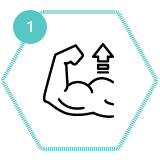
As an essential nutrient composed of building blocks known as amino acids, protein is not only a component of muscle, but also of bone, joint, tendons, ligaments, hair, antibodies, hormones, enzymes and LDL and HDL cholesterol. The nutrient supports a healthy immune system, can regulate blood glucose and plays a role in body composition.
Cutting way back on protein is a good way to lose weight.
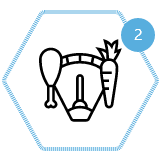
Consuming insufficient protein can actually make it harder to lose weight since the nutrient helps keep you full and your metabolism boosted. If you do lose weight by cutting the protein, chances are its muscle – not fat – loss. What's more, not eating enough protein can lead to other side effects including fatigue, weakness, leg swelling (edema), and a suppressed immune system, which can result in more frequent illness.
As long as you eat enough protein daily, it doesn't matter when or how you consume it.
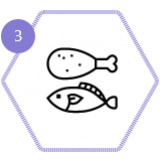
People tend to eat most of their protein at lunch and dinner, but in order to maximize muscle protein synthesis, you should eat about 20 to 30 grams per meal (in addition to carbohydrates and plenty of fruits and vegetables). For breakfast, consider adding eggs, dry fruits, milk, or sprouts to the morning. Lunch could include beans or lentils, paneer, cereals. Dinner could contain soybean, fish, chicken, beans, tofu, eggs, chickpeas, rajma, etc
Whey-Based Protein Will Make You Fat
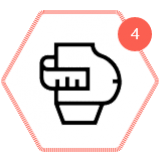
Will consuming whey-based protein lead to weight gain? Yes, it could—but only in the way that eating chicken and even salad can eventually lead to weight gain. Too much of anything can boost your calorie intake and lead to a larger number on the scale, so don't let the rumors scare you away from whey.
Eating too much protein causes kidney disease.
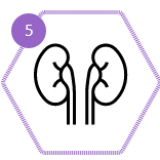
Consuming excess protein only harms the kidneys if you have underlying kidney or liver disease, since healthy kidneys are very good at expelling the extra nitrogen that comes with eating lots of steak, eggs and beans.
Chickpea (channa) is a rich source of protein
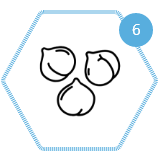
Chickpea is not a primary source of protein as every 1g of chickpea protein comes with 3g of carbohydrates. Do not rely on it (or similar legumes) as your primary source of protein. A diet rich in these legumes is a high-carbohydrate diet – not a high-protein.